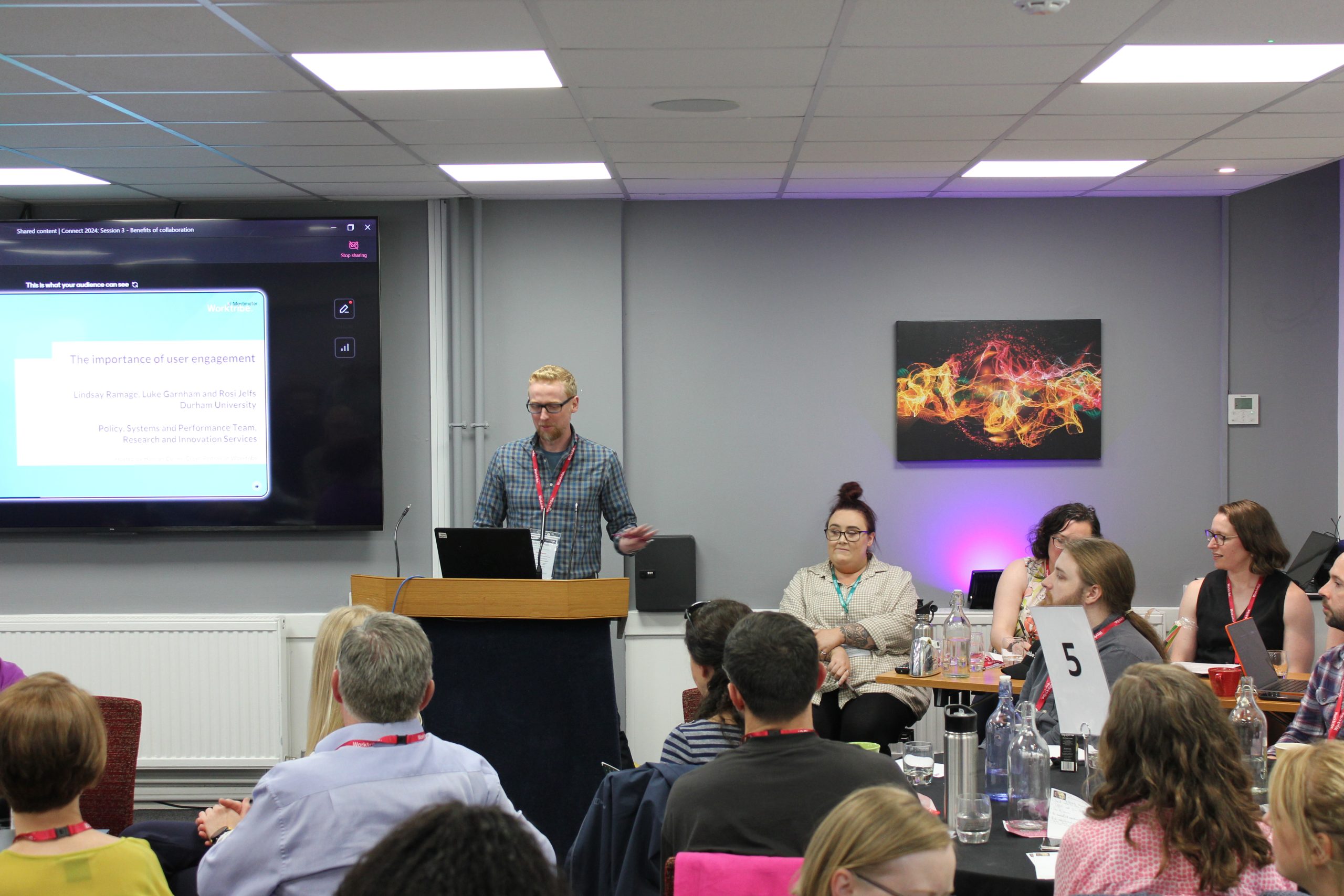Transforming Research Collaboration through Worktribe, Durham University
At Connect 2024, Rosi Jelfs, Luke Garnham, and Lindsay Ramage from Durham University led a session on “The Importance of User Engagement and Collaboration,” highlighting essential strategies for fostering user involvement and teamwork to enhance project success. Read all about it below.

The Worktribe Connect 2024 session on “User engagement, benefits of collaboration, and lessons learned as we build up the Durham Worktribe suite” highlights our journey over the past 6 years, and how we have had to change and adapt our communications with users and key University personnel over this time. Our vision for the system was to significantly improve collaboration, transparency, and efficiency in processes across the research lifecycle. There have been big and small implementation projects, and our user base has increased and diversified over this time which means the service we provide has had to change and adapt. We also reflected on the things that went well and what we might have approached differently.
The beginning of our journey
At Durham University, our Worktribe journey started in 2018 when we implemented the Pre-Award module and then Post-Award module (2020). Since then, we have implemented Contracts (2020), Outputs and Profiles (2020-2023 – including a Covid-19 enforced break), Impact (2023) and REF (2024). Each additional module has increased the number as well as the breadth of people we engage with, via and about Worktribe. This change was most significant with the launch of Outputs and Profiles, with all teaching and research staff needing to engage with Worktribe for profile management at the very least.
Engaging key stakeholders
During module implementations we engaged with invested parties, and depending on the module in question this could include Computing & Information Services (CIS), other Research & Innovation Services (RIS) colleagues, Finance, Legal Services, University Library & Collections and academic colleagues. As the number of key people/service areas increase, it can be a challenge to make decisions and strategies that accommodate all voices and needs. Having the appropriate knowledgeable strategic leadership to make big and quick decisions is important especially when implementing systems. It is easy to select very senior colleagues but do they always have the correct skills and in-depth knowledge to make informed decisions? Post-implementation engagement depended very much on the module, both in terms of the who and the how.
Post-implementation: A shift in approach
Through each implementation and post-implementation phase we have learnt things that we have taken forward that have influenced the service we offer now. Particularly since launching Outputs and Profiles, our focus has been on the training and guidance that we offer, and taking more of a customer service approach towards the people we engage and communicate with; thinking of them more as customers and collaborators, and less as just users. Moving from the implementation phase of system to the maintenance phase can be quite a big adjustment and requires a change in approach to service provision – it is important to consider this early and not leave it until you have finished the implementation phase.
Lessons Learned
As part of our session, we asked the audience what their lessons learned were, and we had a good range of responses, with the thread running through the majority focusing around deployment of appropriate resource. A summary of the lessons learned was:
- Making appropriate decisions about how much work is actually needed to realise the benefits – don’t underestimate this!
- Having the correct resource (people and budgets) to complete the project. Releasing people from day jobs to engage in delivery and training.
- Investment in change management of people moving from ‘we have always done things this way, so why change’ to understanding the potential benefits of change.
- Considering any data migrations – what is essential, what effort and resources are needed and is there a real cost benefit realisation in doing this?
- Engage with the right people at the right time and ensure that this can be on an ongoing basis as needed before and after implementation of a new product.
- Having appropriate support in place post-launch especially university IT support for integrations.
This was not a surprise given the financial pressures in the HE sector but did reiterate what we often feel when attending events like this – that everyone is facing the same challenges and talking about them together can be a source of comfort and inspiration.
Conclusion
Our journey with Worktribe at Durham University has been one of growth, learning, and adaptation. By embracing a collaborative and customer-focused approach, we have successfully navigated the complexities of implementing and maintaining a comprehensive research management system. As we continue to evolve, the lessons learned and insights gained will guide us in enhancing our services and supporting our diverse user base effectively.